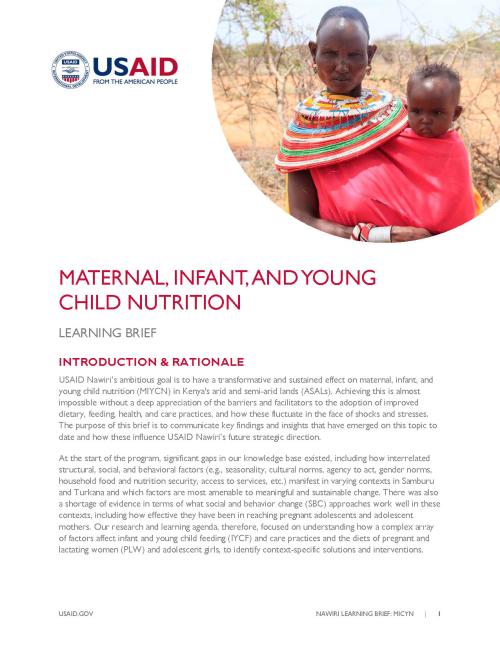This brief presents learning on maternal, infant, and young child nutrition (MIYCN) in Kenya's arid and semi-arid lands. The learning was generated through a combination of desk review, stakeholder mapping, and landscape analysis of existing policies, programs, governance structures, and coordination mechanisms, as well as a human-centered design process. Findings were that without gender-transformative approaches to water security and governance, women and girls will continue to bear the burden of fetching water, affecting energy expenditure and reducing time for infant and young child feeding and care, income generation, education, and participation in public life. There is a missed opportunity for more inclusive social and behavior change approaches that recognize the role of fathers, elders, and other economic and cultural custodians. In addition, to break the intergenerational cycle of malnutrition, systems must be more responsive to the unique needs and vulnerabilities of different groups of adolescents. The Baby-Friendly Community Initiative shows promise, but more effort is needed to arrive at a financially sustainable form of the model that can be scaled and adapted to the needs of various service users. Lastly, integrated county nutrition action plans have yet to be fully operationalized in either county, and coordination mechanisms need more support to flourish. The political economy analysis and community health system (CHS) areas of inquiry laid out how the system—upon which many MIYCN interventions rely—remains under-resourced, leading to low coverage, weak monitoring and reporting, and diminished motivation among staff and volunteers to provide health services.
Learning Brief
Full Report(s)
